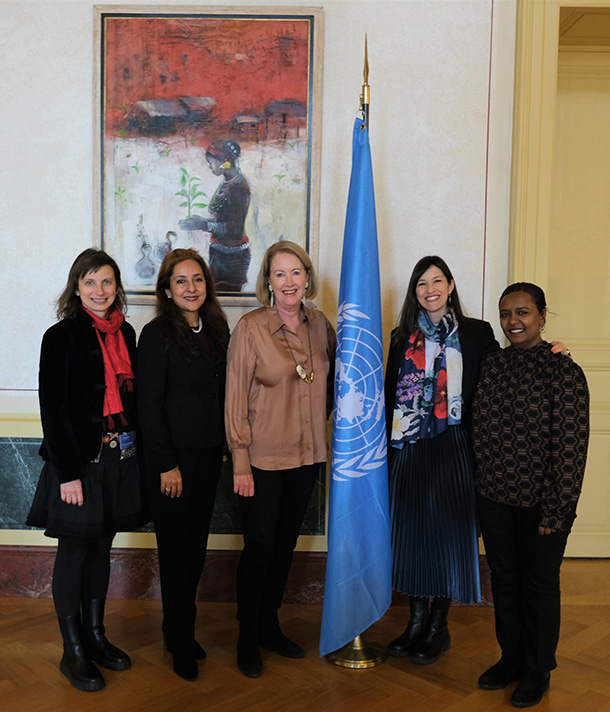EDVAW Platform
Working Group on discrimination against women and girls
On 1 February 2023, the United Nations Working Group on discrimination against women and girls (WGDAWG) is taking over the Chairpersonship of the Platform of Independent Expert Mechanisms on the Elimination of Discrimination and Violence against Women (EDVAW Platform) from GREVIO’s President Ms. Iris Luarasi. The Working Group is currently chaired by Ms. Dorothy-Estrada Tanck and composed of WG experts Ms. Ivana Radačić (Vice-Chair), Ms. Meskerem Geset Techane, Ms. Elizabeth Broderick and Ms. Melissa Upreti.
Under the leadership of the WGDAWG, from 1 February 2023 to 31 January 2024, the EDVAW Platform will focus on the need to unite against the escalating backlash against women’s and girls’ rights through strong joint actions against rollbacks and a proactive agenda to advance and protect the human rights of all women and girls. A central component of the Platform’s work in countering these rollbacks will be to mobilize increased support for girls’ and young women’s activism. The EDVAW Platform will also continue to garner public and political support for preventing and combating gender-based discrimination and one of its most brutal manifestations, violence against women and girls, including domestic violence, on the basis of existing international and regional legal instruments, notably the Convention on the Elimination of all Forms of Discrimination Against Women, the Council of Europe Convention on Preventing and Combating Violence Against Women and Domestic Violence, known as the Istanbul Convention, which is open to universal accession, the Belém do Pará Convention and the Maputo Protocol.
About the EDVAW Platform
The EDVAW Platform was launched in March 2018. It is composed of seven United Nations and regional independent expert mechanisms dedicated to addressing discrimination and violence against women and girls, promoting accountability, and advancing their human rights.
The EDVAW Platform expert mechanisms include:
- UN Working Group on discrimination against women and girls (WGDAWG), Chair
- UN Special Rapporteur on violence against women and girls (SR VAWG)
- UN Committee on the Elimination of Discrimination against Women (CEDAW Committee)
- Group of Experts on Action against Violence against Women and Domestic Violence (GREVIO)
- Committee of Experts of the Follow-up Mechanism to the Belém do Pará Convention (MESECVI)
- African Commission on Human and Peoples' Rights Special Rapporteur on the Rights of Women in Africa (A SRWHR)
- Inter-American Commission on Human Rights’ Rapporteur on the Rights of Women (IA RWHR)
Independent expert mechanisms play a crucial role in monitoring the implementation of human rights standards aimed at eliminating discrimination and violence against women and girls. Their work provides essential information on the situation of women’s rights, on action undertaken to combat violence against women as well as on urgent issues, gaps and shortcomings in the implementation of international standards and government commitments. The Platform aims to strengthen institutional links and thematic co-operation between the mechanisms with a view to developing harmonised strategies and undertaking joint action. By enhancing collaboration, its goal is to improve the implementation of the existing international and regional legal and policy frameworks developed to end discrimination and violence against women and to make these mechanisms more visible and accessible to all.

Working Group on discrimination against women and girls